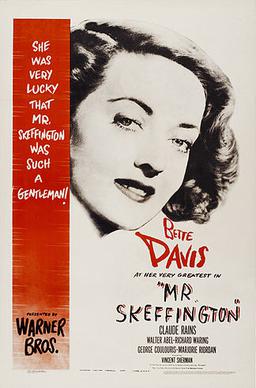
Mr. Skeffington is a 1944 American drama film directed by Vincent Sherman, based on the 1940 novel of the same name by Elizabeth von Arnim.

Easy Virtue is a 1928 British silent romance film directed by Alfred Hitchcock and starring Isabel Jeans, Franklin Dyall and Ian Hunter.

Wife vs. Secretary is a 1936 American romantic comedy drama film starring Clark Gable, Myrna Loy and Jean Harlow. Directed and co-produced by Clarence Brown, it was the fifth of six collaborations between Gable and Harlow and the fourth of seven between Gable and Loy. The screenplay was based on the short story of the same title by Faith Baldwin, published in Cosmopolitan magazine in May 1935. The screenplay was written by Norman Krasna, John Lee Mahin and Alice Duer Miller.
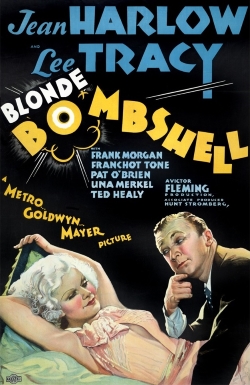
Bombshell is a 1933 American pre-Code romantic screwball comedy film directed by Victor Fleming and starring Jean Harlow, Lee Tracy, Frank Morgan, C. Aubrey Smith, Mary Forbes and Franchot Tone. It is based on the unproduced play of the same name by Caroline Francke and Mack Crane, and was adapted for the screen by John Lee Mahin and Jules Furthman.

Waterloo Bridge is a 1931 American pre-Code drama romance war film directed by James Whale and starring Mae Clarke and Kent Douglass. The screenplay by Benn Levy and Tom Reed is based on the 1930 play Waterloo Bridge by Robert E. Sherwood.

The Golden Ball and Other Stories is a short story collection written by Agatha Christie and first published in the US by Dodd, Mead and Company in 1971 in an edition priced at $5.95. It contains fifteen short stories, all of which were originally published from 1925 through 1934.
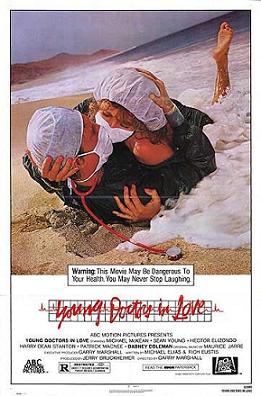
Young Doctors in Love is a 1982 American comedy film directed by Garry Marshall. It spoofs a variety of medical shows and has many guest stars from ABC soap operas.

Suzy is a 1936 American drama film directed by George Fitzmaurice and starring Jean Harlow, Franchot Tone and Cary Grant. The film was partially written by Dorothy Parker, based on a novel by Herbert Gorman. The Academy Award-nominated theme for Suzy, "Did I Remember?", was sung by Virginia Verrill (uncredited).

Saratoga is a 1937 American romantic comedy film starring Clark Gable and Jean Harlow and directed by Jack Conway. The screenplay was written by Anita Loos. Lionel Barrymore, Frank Morgan, Walter Pidgeon, and Una Merkel appear as featured players; Hattie McDaniel and Margaret Hamilton appear in support. It was the sixth and final film collaboration of Gable and Harlow.

The Girl from Missouri is a 1934 American romantic comedy-drama film starring Jean Harlow and Franchot Tone. The movie was written by Anita Loos and directed by Jack Conway.
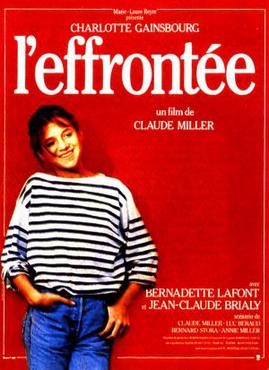
The Impudent Girl is a 1985 French film directed by Claude Miller. It stars Charlotte Gainsbourg, who won the César Award for Most Promising Actress, and Bernadette Lafont, who won the César Award for Best Actress in a Supporting Role. It is a free adaptation of the novel Frankie Addams.

Not Here to Be Loved is a 2005 French film directed by Stéphane Brizé.

The Saturday Night Kid is a 1929 American pre-Code romantic comedy film about two sisters and the man they both want. It stars Clara Bow, Jean Arthur, James Hall, and in her first credited speaking role, Jean Harlow. The film was based on the play Love 'Em and Leave 'Em (1926) by George Abbott and John V. A. Weaver. The movie still survives. The film was preserved by the UCLA Film & Television Archive with funding by Clara Bow biographer David Stenn.

Fools Rush In is a 1949 British comedy film directed by John Paddy Carstairs and starring Sally Ann Howes, Guy Rolfe and Nigel Buchanan.
Let Us Be Gay is a 1930 American pre-Code romantic comedy-drama film produced and distributed by MGM. It was directed by Robert Z. Leonard and stars Norma Shearer. It was based on and filmed concurrently with the 1929 play by Rachel Crothers which starred Tallulah Bankhead and ran for 128 performances at London's Lyric Theater. Critics generally preferred Tallulah's rendition to Shearer's.
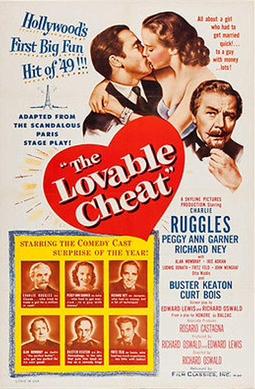
The Lovable Cheat is a 1949 American historical comedy film directed by Richard Oswald and starring Charles Ruggles, Peggy Ann Garner and Richard Ney. It is based on the 1848 play Mercadet Le Faiseur by Honoré de Balzac. It was the final film of the veteran Austrian director Oswald, who had fled into exile following the Nazi rise to power. Buster Keaton played a small supporting role in the film, as his career had seriously declined by this stage.
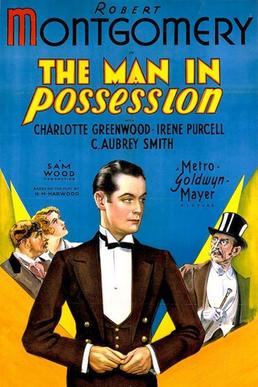
The Man in Possession is a 1931 American pre-Code romantic comedy film starring Robert Montgomery, Charlotte Greenwood, Irene Purcell, and C. Aubrey Smith, based on the play of the same name by H. M. Harwood. The black sheep of a family finds himself falling in love with the wealthy woman his brother is seeking to marry.

Arctic Flight is a 1952 American drama film directed by Lew Landers and starring Wayne Morris, Alan Hale Jr. and Lola Albright. It was produced and distributed by Monogram Pictures. Arctic Flight depicts bush pilot flying in the Arctic on the edge of the International Date Line, involving Soviet intrigue.

Coming Out Party is a 1934 American Pre-Code drama film directed by John G. Blystone starring Frances Dee, Gene Raymond, Alison Skipworth and Nigel Bruce. It was produced and distributed by the Fox Film Corporation.

















